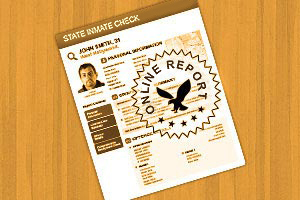Wyoming Public Records
The Wyoming State Records website’s mission is to provide every person with the right to detect, obtain, preview, and examine public records. This ensures that Wyoming residents are provided with access to this information in accordance with the Wyoming Sunshine Law. This law specifies that all government information and records are presumed available to the public.
The goal of this website is to provide access to public records expediently and concisely and without requiring personal information unless the requested information is ruled confidential by law or court decision.
Wyoming State Records contains information about the following subjects: criminal records, court records, and vital records, including over 5 million transparent public records.
Are Wyoming Records Public?
Yes. The majority of government records created in Wyoming are considered public per the Wyoming Public Records Act. Consequently, anyone can request a Wyoming public data search from a local or state government agency to find a public record. Sometimes, a person can conduct a free public data search through these official sources.
Under the act, public records include all information created, obtained, or accepted by a governmental entity while transacting public business. In Wyoming, the record’s mode of transmission or location of exchange is irrelevant to its public status. The state also considers requests submitted for these records as public. Some examples of public records include inmate records, property records, bankruptcy records, Wyoming death records, and sex offender information.
What is Considered Public Information in Wyoming?
The Wyoming Public Records Act classifies public records into two categories:
- Official Public Records
According to WY Stat § 16-4-201(a)(vi)(A), official public records include all records necessary to prove transactions connected to the disposition or use of public income or public property. These records include receipts, original vouchers, claims against a government agency, agreements, contracts where a public agency is a party, and all records kept by or filed with a Wyoming public agency as required by law. This category also includes records or documents considered official public records by the State Records Committee.
- Office Files and Memoranda
Wyoming Law WY Stat § 16-4-201(a)(vi)(B) describes office files and memoranda as documents and information not classified as Official Public Records. These include exhibits, correspondences, drawings, blank forms, booklets, books, and other records and documents. The category also comprises all records and reports created for the agency’s internal administration purposes, whether or not the law requires that such documents be filed or kept with the agency. Lastly, office files and memoranda include all records and documents considered so by the State Records Committee.
Note: The Wyoming Public Records Act does not mandate custodian agencies to create records required by requesters. However, WY Stat, § 16-4-202(d)(ii) states that if requested, an agency must provide alternative electronic file types for records primarily or solely in an electronic format. Agencies must comply with this law for such public records act requests unless providing alternatives is impossible or impracticable.
How Do I Find Public Records in Wyoming?
The process required to find Wyoming public records may vary between record types and custodians. However, there are general steps each record seeker must take to obtain desired records. The Wyoming Public Records Act mandates record custodians to allow the inspection or duplication of public records to the extent permitted by the law. The steps below illustrate how to do a public record search in Wyoming:
- Figure out the type of record
Public records are available at custodian agencies in different formats. Persons seeking Wyoming public records must first decide the type of information they need. For instance, information on whether or not an individual is divorced requires a request for Wyoming divorce records. - Determine the Wyoming department serving as custodian of the record
Wyoming public agencies maintain records containing information related to their statutory functions or as required by law. The type of record desired usually helps to identify the agency that created or maintains the record. For example, persons who need copies of state bankruptcy records may contact the Wyoming Bankruptcy Court.
Requesters should note that some information may be obtainable from more than one governmental agency. For instance, interested persons may obtain divorce information by requesting a divorce decree from the District Court Clerk in the county of divorce, or a Wyoming divorce certificate from the state’s Department of Health. - Create a request
After identifying the agency, the next step is to create an official request for the record. Custodian agencies usually provide members of the general public with varying request options. Wyoming law states that record seekers must submit applications to the record custodian and defines an application as a written request for a public record. Regardless, a designated records custodian may use their discretion to accept a verbal request as official.(WY Stat § 16-4-201(a)(ix)).
All record seekers must ensure that an application for a public record contains the following details:- The specific type of record, especially if requesting from a government agency that maintains multiple types of public records. For example, the Wyoming Department of Health that maintains different types of vital records.
- Information contained on the record. This includes names, relevant dates, locations, and other applicable details.
- The requester’s full name, contact information, and other personal details if applicable
- The payment as stated by the custodian
- Means of identification if applicable
- Preferred record delivery method
- Submit the request
Requesters may then submit the compiled request as preferred by the agency. Possible options may vary but usually include in-person, mail, fax, phone, and online submissions. In most cases, mail requests require longer processing periods than other options. However, certified copies of requested records may only be obtainable via mail and in person. Requesters must also adhere to each agency’s specific request instructions to avoid delays.
How to Use Third-Party Sites to Find Public Records in Wyoming
City Records
Public city records may also be accessible from third-party websites. These non-government platforms come with intuitive tools that allow for expansive searches. Record seekers may either opt to use these tools to search for a specific record or multiple records. However, users will need to provide enough information to assist with the search such as:
- The name of the subject involved in the record (subject must be older than 18 or not juvenile)
- The address of the requestor
- A case number or file number (if known)
- The location of the document or person involved
- The last known or current address of the registrant
Third-party sites are not sponsored by government agencies. Because of this, record availability and results may vary.
Public Records
Public records can also be accessed from third-party websites. These third-party public records aggregate websites offer search services that are non-geographically limited, making the search result expansive and typically straightforward. However, users will need to provide enough information to assist with the search, such as:
- The name of the subject involved in the record as long as the subject is not a juvenile
- The last known or location of the record subject
Third-party public records search websites are not government-sponsored services. Therefore, the availability and accuracy of results can vary.
How Do I Lookup Public Records in Wyoming for Free?
Access to a free public records search in Wyoming may be limited. The Wyoming Public Records Act states that request fees should not be a condition for making public records available to the public. However, the act also authorizes record custodians to set reasonable request fees, especially where no law states otherwise. Requesting physical copies of public records usually costs money, which varies depending on record type and volume.
Free public records that Wyoming entities generate or maintain may be available online, depending on the type of record. Some Wyoming agencies provide public access to databases with free but uncertified records. For instance, members of the public can use the Wyoming Offender Locator to find free information on inmates in the Wyoming Department of Corrections’ custody. Individuals can also execute a free Wyoming public records search for county records on public records databases maintained online by county clerk/recorder offices.
Persons looking to access free public records in Wyoming may also request inspections instead of copies. Some agencies may allow interested requesters to obtain records free of charge by inspecting them in person at reasonable times.




